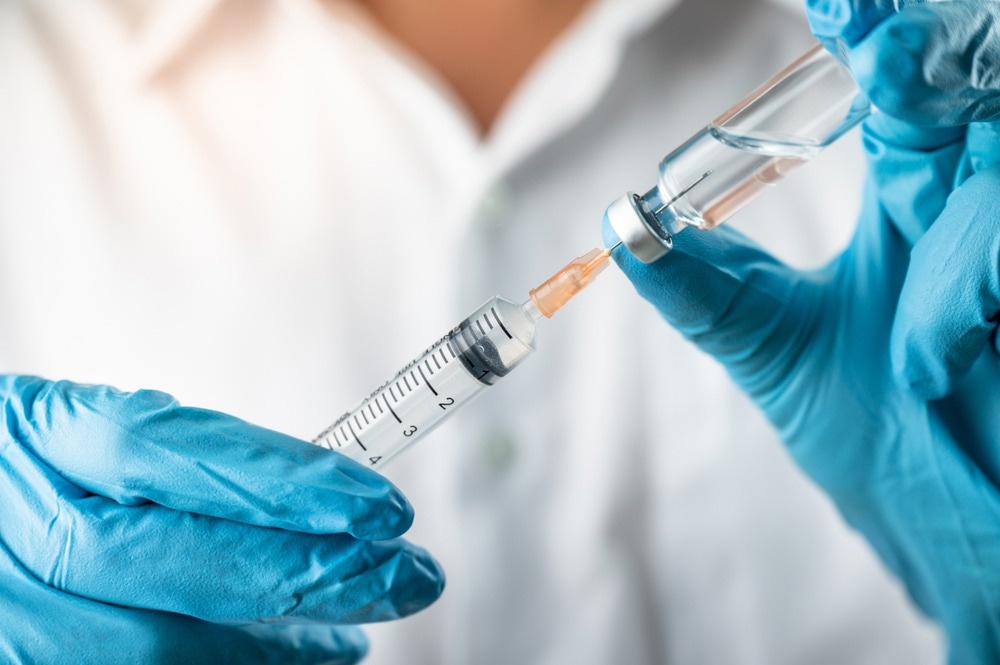In a recent study published in JAMA Network, researchers described the human monkeypox virus infection after vaccination with the modified Vaccinia Ankara-Bavarian Nordic (MVA-BN) vaccine.
 Study: Human Monkeypox Virus Infection in the Immediate Period After Receiving Modified Vaccinia Ankara Vaccine. Image Credit: PhotobyTawat/Shutterstock
Study: Human Monkeypox Virus Infection in the Immediate Period After Receiving Modified Vaccinia Ankara Vaccine. Image Credit: PhotobyTawat/Shutterstock
Background
MVA-BN is a live, non-replicating vaccination that protects adults from contracting smallpox and monkeypox. While immunogenicity studies point to substantial response rates following the two-dose series with MVA-BN vaccination, evidence of clinical use effectiveness is scarce. Since local health departments struggle to procure MVA-BN, many have adopted a single-dose strategy to utilize the current supply best. Additional strategies to administer lower volume doses intradermally have also been employed.
About the study
The present study described monkeypox infections observed following a single dose of MVA-BN.
Howard Brown Health (HBH) started using real-time reverse transcriptase-polymerase chain reaction (RT-PCR) testing to identify monkeypox in May 2022. On June 28th, 2022, HBH started distributing MVA-BN to qualified individuals. The study included individuals who tested monkeypox positive between June 28th, 2022, and September 9th 2022, a minimum of one day after receiving the first dose of the MVA-BN.
From the electronic medical record (EMR), all instances of monkeypox-positive cases during the study period were retrieved. The EMR and a study of a statewide computerized database for the exchange of immunization records were then used to determine the patient's vaccination status.
Following vaccination, confirmed cases of monkeypox were divided into four groups based on the number of days until positivity- one to seven days, eight to 14 days, 15 to 28 days, and more than 28 days. The EMR was used to extract information on demographics, human immunodeficiency virus (HIV) status and virologic suppression, and use of HIV preexposure prophylaxis.
Results
During the trial period, 7,339 people at HBH received their first dosage of MVA-BN, while 400 patients tested positive for monkeypox. Among 90 individuals who tested monkeypox-positive a minimum of one day after immunization, 73.5% displayed viral loads less than 200 copies/mL, 91% were cisgender, and 37.8% had HIV.
The team noted that 37 cases occurred one to seven days while 32 cases were reported eight to 14 days after vaccination. This accounted for 77% of all cases diagnosed after vaccination. It took an average of 8.5 days from vaccination to infection. Furthermore, 36.2% of the cases that occurred one to 14 days after vaccination were HIV-positive individuals, 96% of whom were virologically suppressed. Preexposure prophylaxis was used by 54% of early post-vaccination cases that did not have HIV infection.
Two instances of monkeypox occurred more than 14 days after the second dosage of MVA-BN, which were included in the total eight cases diagnosed 28 days after the first MVA-BN vaccination. All eight patients identified as cisgender males, 50% of whom had HIV and were virologically suppressed. Less than ten lesions were observed in all patients except one. Due to the severity of their anogenital symptoms, one patient received tecovirimat antiviral medication.
Conclusion
Overall, the study findings showed that most monkeypox-positive cases noted after MVA-BN vaccination occurred within two weeks of the first dose before the vaccine was likely to display full efficacy.